STUDENT SPOTLIGHT
Students like Chelsea Schripsema leverage persistence, innovation, and a world-class Purdue education to make real impact at home and across the globe.
For Chelsea Schripsema, a multidisciplinary engineering student with a concentration in humanitarian engineering, service-learning means walking alongside the communities she is engaging with.
Chelsea describes how her world opened up when she discovered what she calls “boots-on-the-ground engineering” – an approach that has allowed her to work one-on-one with people or groups in need in a way that fosters a valuable exchange from both sides.
The only undergraduate student invited to speak at the 2023 Engagement Summit, Chelsea describes in the video how she didn’t know she wanted to come to Purdue until she met Purdue Engineering’s largest service-learning community, the EPICS (Engineering Projects In Community Service) program. At EPICS, she found her purpose: pairing humanitarian + engineering projects. But even that path was not without challenges – Chelsea found she had to first had to “fail before she could fly.”
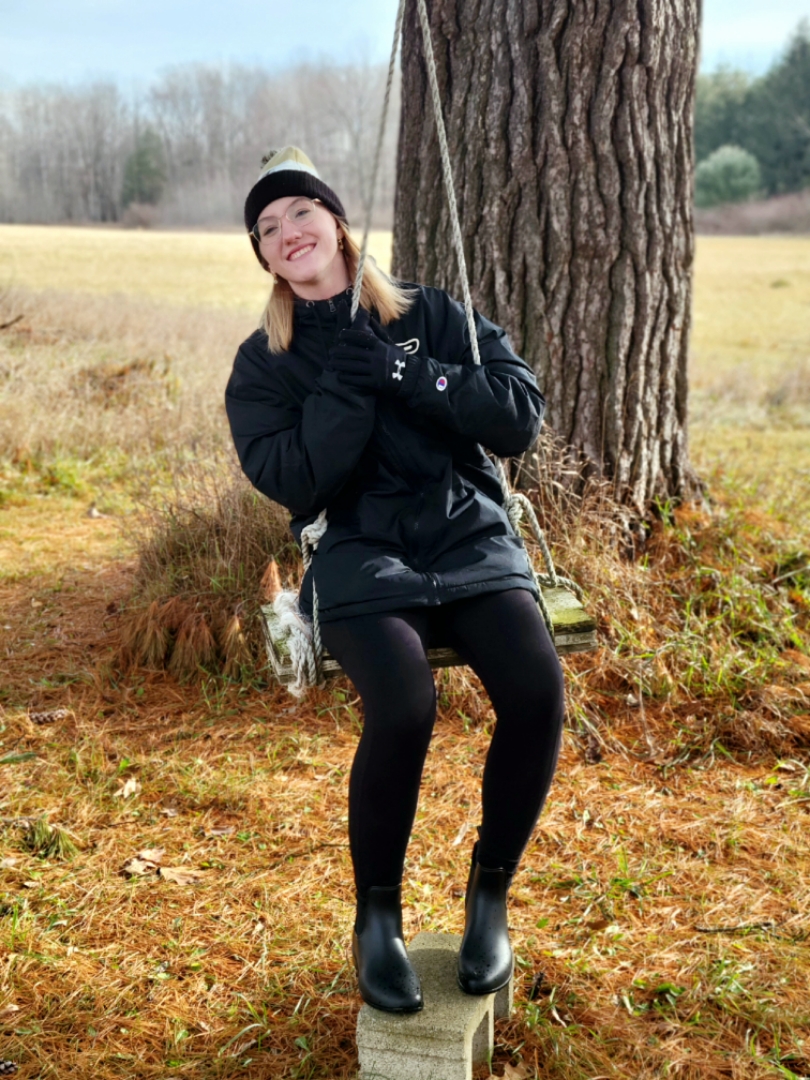
Service-Learning Start
Chelsea’s service-learning journey started when she left her small town to come to Purdue. “At the beginning, I felt very out of place,” she said. “But EPICS helped me find my place.”
Service-learning courses and communities like the Purdue University EPICS program help students gain practical experience and strengthen their design skills while engaging with hands-on opportunities to make a real impact on the world around them. Throughout the program, students lead teams to design, build and deliver projects for real community organizations.
Chelsea’s first day of lab at EPICS reshaped her future goals and led her to the humanitarian pathway she ultimately chose, because that was the first time someone had ever asked her to design something she was personally passionate about.
“They really cared about my perspective. It was a turning point in my confidence and understanding of what I wanted to do with my life.”
From here, Chelsea became involved with a series of projects that took her on a journey of what her work could be locally, nationally and globally.
Since 2014, the Office of Engagement has funded more than 1,500 grants to students partnering on service projects with over 340 different community partners. The program expands student involvement in community service, in partnership with communities, nonprofit agencies, schools, and other partners.
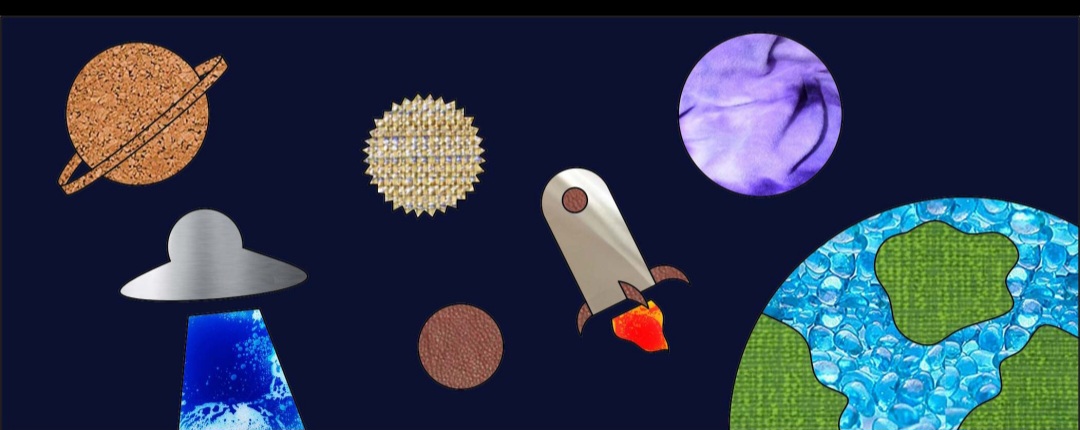
Local Impact
Chelsea has done significant work with Wabash Center’s Grant’s House through EPICS. “Grant’s House has a large population of mobility aid users, and in emergency situations if they are on the upper levels of the building, they need a safe and efficient way to evacuate,” said Chelsea.
Her work involved designing alternative emergency evacuation systems and sensory friendly architecture, including a sensory room for neurodivergent individuals. This work will help Grant’s House clients avoid or soothe overstimulation.
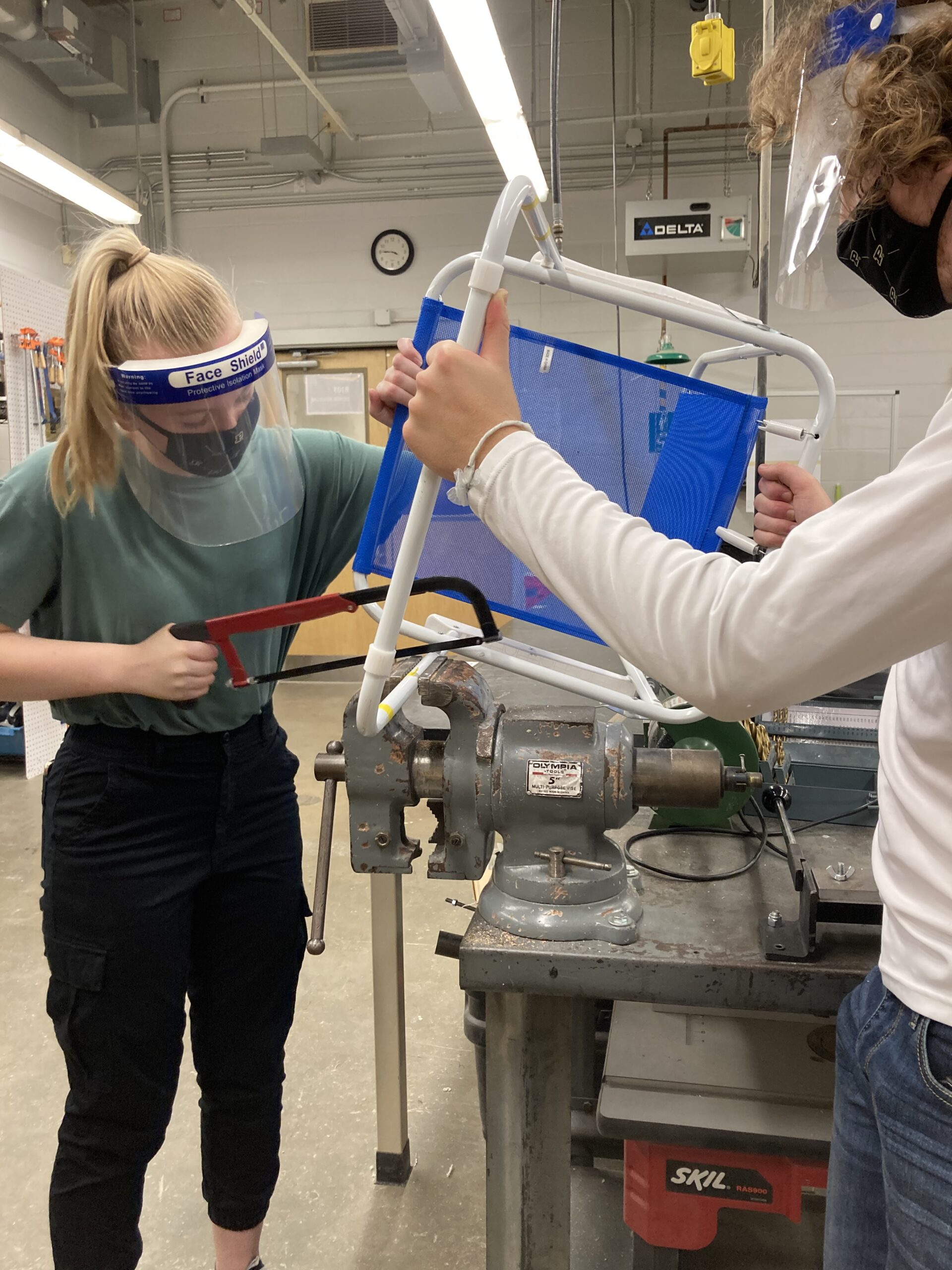
National Impact
Chelsea’s first project enabled her to work with a family from southern Michigan. Their daughter has a neuromuscular disorder that prevents her from making or maintaining muscle mass, which means that everyday needs like taking a bath can become dangerous. Chelsea’s goal with the project was to design a long-term solution to keep the toddler safe and stable, while making it possible for her to also have the freedom to play and be a kid. The tub Chelsea designed was delivered at the end of Chelsea’s freshman year and is still in use today.
“It’s pretty neat to know that something I made is still keeping a kid safe almost three years later.”
Through the Purdue University chapter of Engineers without Borders, Chelsea is also part of a team partnering with the Grand Caillou/Dulac Band of Biloxi-Chitimacha-Choctaw Native American Tribe to design a hurricane-resistant community center. The design includes a hurricane-proof community garden to help increase sustainability and independence, and combat the food desert currently faced by that community.
“It’s pretty neat to know that something I made is still keeping a kid safe almost three years later.”
Chelsea Schripsema
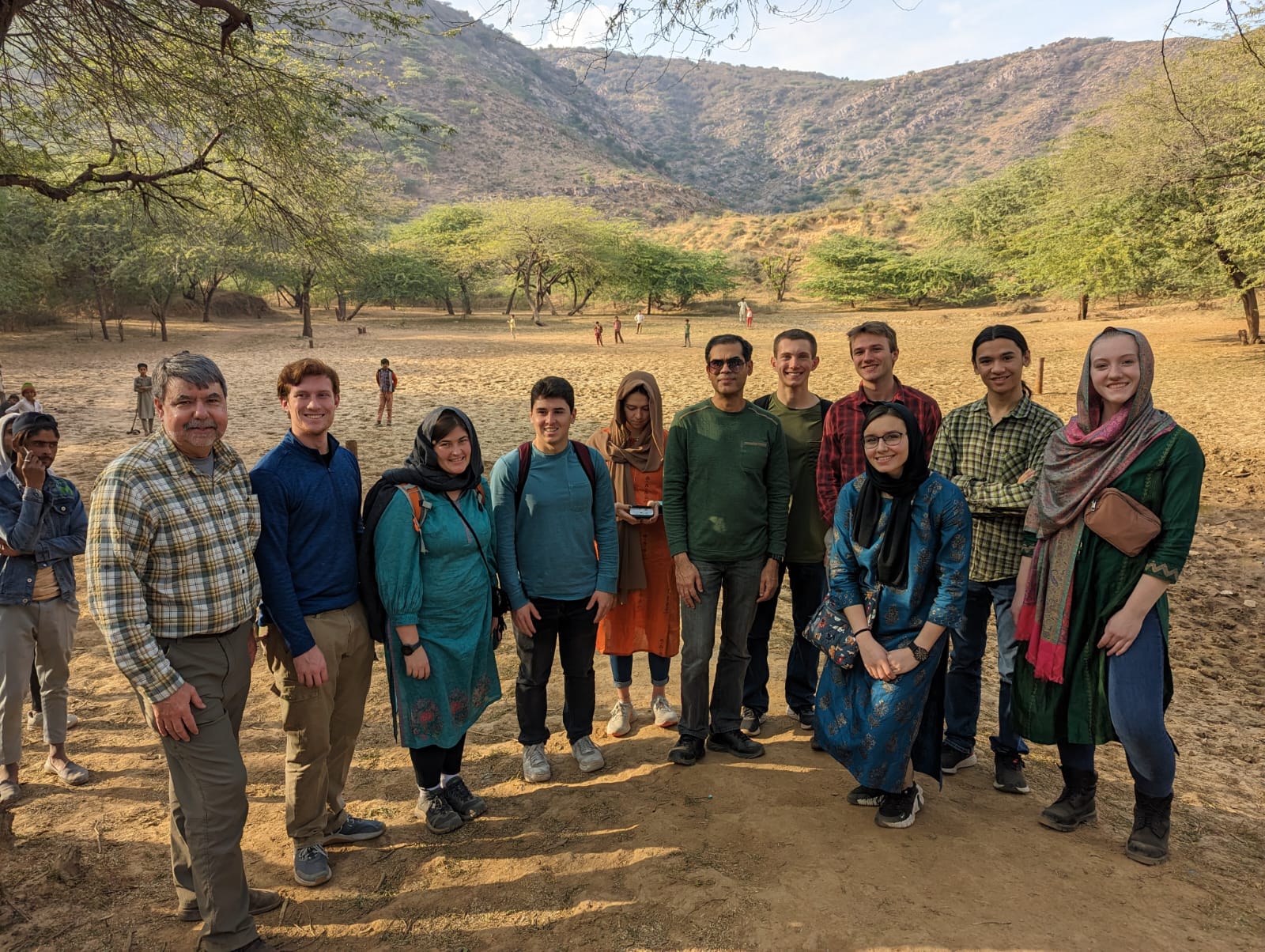
Global Impact
Chelsea attributes what she was able to accomplish during a recent study abroad trip in northern India to EPICS. “Without EPICS, I wouldn’t have the background I needed for this trip.”
Chelsea and her team helped provide access to clean water and education for the northern Indian communities they had the opportunity to engage with.
Students like Chelsea have presented more than 200 student engagement projects at the annual student engagement showcase to date.
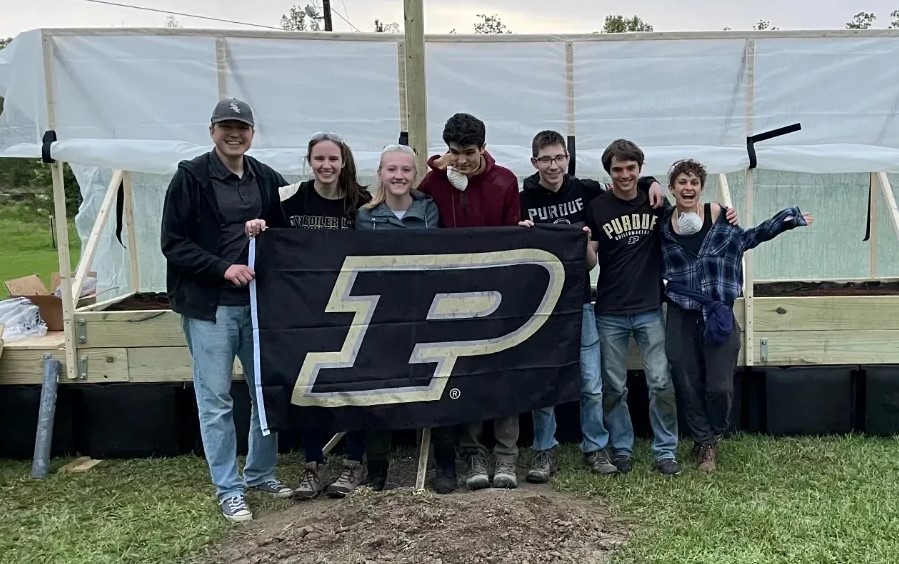
Continuing the Cycle of Impact
When asked what advice she would give to students considering embarking on service-learning and joining EPICS, Chelsea said that first, she would strongly encourage them to take the leap. She feels service-learning in general is invaluable:
“It’s more than just helpful for your education; it builds on the whole human experience. The ability to help others as an undergrad is so cool, and it does even more for you as a person.”
Chelsea said that EPICS has helped her figure out how to learn and lead simultaneously, and build the perseverance and credibility she will need to accomplish her ambitions for the future.
“Struggling doesn’t mean you’re doing anything wrong. Challenges are part of the experience. if things are going too easy, you’re missing something. If you encounter issues, you’re on the right track. Navigating issues allows you to figure out what doesn’t work and make it better. It is something that develops your skills and develops you.”
To date, more than 350 student authors have shared their service-learning and engagement scholarship with the world through the Purdue Journal of Service-Learning and International Engagement.
Source: Office of Engagement graduate assistant Kayla Vasilko.